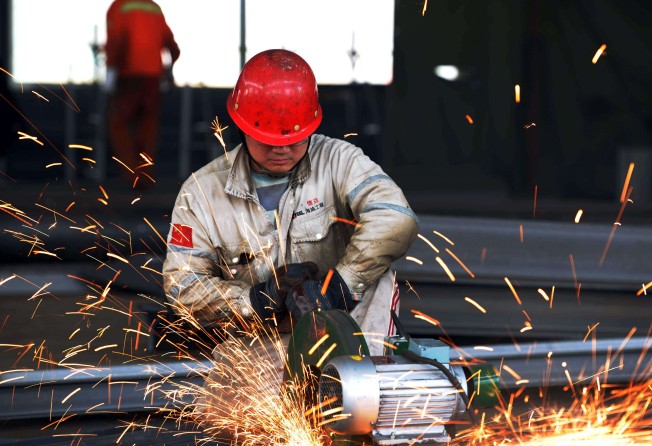
Equity investors should shift to China’s new economy stocks again, UBS advises
New economy stocks are relatively appealing on valuation, says UBS

It’s time to switch back to China’s new economy sector, following a four-month rally in old economy names, according to UBS.
Companies in industries such as the internet, high-end manufacturing , alternative energy, and environment protection should do well in the coming months, said Tan Min-lan, UBS managing director and head of the Asia-Pacific investment office.
“If you look at China, what’s been interesting is that the old economy sectors indeed benefited most since the end of January,” Tan said. “But the strategy we like is to switch to the new economy, which we think will continue to benefit from China’s economic restructuring.”
Cement makers and state-owned steel factories, either listed in the mainland or Hong Kong, recovered in the past three months despite lingering overcapacity problems, as investors believe China’s property market and infrastructure investment will remain pillars to shore up domestic economic growth.

BlackRock, the world’s largest fund managers with US$4.7 trillion in assets under management, said in mid May that it added some Chinese old economy stocks to its investments since the start of the year, including materials and energy stocks.
Larry Fink, chairman and chief executive of BlackRock, said that China seems to weigh economic stability more than restructuring.
The old economy will remain a part of China’s growth, although the importance will diminish over time, Tan said.
“Everything has a price. When it falls to a certain level, obviously the stocks will become interesting. But some of these stocks recovered short term between the middle of January and the middle of April. It is quite a good opportunity to switch out some names and pick up new economy equities,” Tan said.
Government support to environmental protection and the alternative energy industries are among the reasons to support the “new economy” sector. Additionally, Tan cited social changes brought by new technology, adding that Chinese people are very adaptive to new developments in e-commerce.
UBS recommends buying into China’s leading internet companies. Tan cautioned against investing in Shenzhen in the short term, even though the market is heavily weighted towards high-tech companies.
Shenzhen’s stock market is entirely driven by retail investors, while valuations are high, Tan said.
“But if you believe the restructuring and rebalancing of China economy will come into force, it is the market you are going to be involved in,” Tan said, “Another attraction is that it is a very local market with little correlation to global stocks, which creates a chance for investment diversification.”
The upgrade of China’s manufacturing industry is creating another investment opportunity, she said.
Chinese manufacturers aim to transform from being low-cost industrial suppliers into higher value-added, innovative manufacturers, wrote Patrick Ho, UBS’ chief investment office head of Asia-Pacific thematic coordination, in a note.
He added that expenditure by these companies on research and development as a percentage of domestic economic growth has jumped fourfold over the past 20 years to 2.1 per cent, the second highest globally, Ho said.